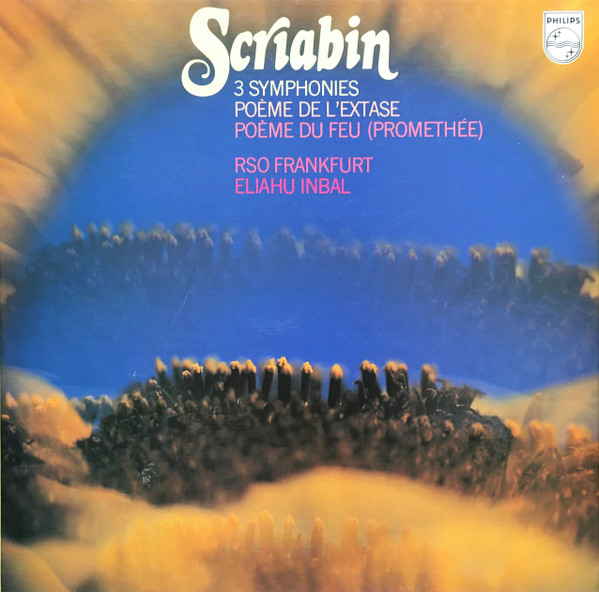Four records full of symphonic works by Scriabin, as performed by Eliahu Inbal and the Frankfurt Radio Symphony Orchestra. I would like to focus on the Poème de l’extase, the poem of ecstasy. This work seems to go from one climax to the next, and as a consequence sometimes takes your breath away: can I still breath a bit please?
The Poem of Ecstasy is the Joy of Liberated Action. The Cosmos, i.e., Spirit, is Eternal Creation without External Motivation, a Divine Play of Worlds. The Creative Spirit, i.e., the Universe at Play, is not conscious of the Absoluteness of its creativeness, having subordinated itself to a Finality and made creativity a means toward an end. The stronger the pulse beat of life and the more rapid the precipitation of rhythms, the more clearly the awareness comes to the Spirit that it is consubstantial with creativity itself. When the Spirit has attained the supreme culmination of its activity and has been torn away from the embraces of teleology and relativity, when it has exhausted completely its substance and its liberated active energy, the Time of Ecstasy shall arrive.
This was written as an introduction and guide for the premiere in 1908, with approval of the composer. The Creative Spirit that is referred to here might be one of the celestial spirits guiding humanity’s evolution on earth. Scriabin was heavily involved with the Theosophical Society at the time.
